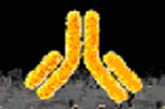Biosimilars/Research
Study results show safety of switching to biosimilar infliximab
US-based Epirus Biopharmaceuticals (Epirus) announced on 23 September 2014 positive week 58 follow-up data from its global phase III study for its biosimilar infliximab (BOW015). Results of the open label phase, which was carried out in rheumatoid arthritis patients, demonstrated comparable safety and efficacy compared to the originator product (Remicade).
Extrapolation for biosimilars
Regarding extrapolation* of indications for biosimilars, the European Medicines Agency (EMA) has stated that ‘if clinical similarity can be shown in a key indication, extrapolation of efficacy and safety data to other indication(s) of the reference product may be possible’ under certain conditions [1].
Biosimilar bevacizumab similar to Avastin in preclinical assessments
Preclinical assessments have demonstrated the similarity of biologicals major Amgen’s biosimilar bevacizumab candidate (ABP 215) to Avastin [1].
Mobilization of stem cells by biosimilar Nivestim and Neupogen
Comparison of biosimilar granulocyte colony-stimulating factor (G-CSF), Nivestim and originator G-CSF, Neupogen (filgrastim), showed no statistical differences when used for the mobilization of peripheral blood stem cells in patients treated for haematological malignancies [1].
Phase III study of biosimilar adalimumab meets primary endpoint
Biologicals major Amgen announced on 8 October 2014 the first late-stage data from its biosimilars programme. Primary efficacy analysis from a phase III trial of Amgen’s adalimumab biosimilar (ABP 501) compared with Humira (adalimumab) has demonstrated ‘clinical equivalence’.
Strategy for biosimilars in China
China is one of the largest pharmaceutical markets in the world, and has seen rapid growth in the biopharmaceuticals industry in recent years. However, it is still lacking guidance when it comes to biosimilars. Authors Li and Tuan from the Shenyang Pharmaceutical University, China, discuss how this affects biologicals companies in China [1].
Biosimilar etanercept demonstrates equivalent efficacy
A phase III trial comparing Hanwha Chemical Corporation (Hanwha)’s biosimilar etanercept, HD203, with Enbrel (etanercept) has demonstrated equivalent efficacy [1].
Adalimumab biosimilar has comparable pharmacokinetics to Humira
An adalimumab biosimilar (CHS-1420) from fledgling biotech company Coherus Biosciences (Coherus) has shown comparable pharmacokinetics in a pivotal clinical study.
The future of biosimilar use and regulation in Latin America
There is a growing uptake of biosimilars in Latin America, but this has not been accompanied by an increase in pharmacovigilance, training or regulation. To address this, an expert panel was put together to discuss the issues involved. The panel’s perspectives on the current status led to six major recommendations drawn up to enhance the safe use of biosimilars across the region [1].
ECCO survey highlights lack of confidence in biosimilar mAbs
In a presentation at the EuropaBio and the Alliance for Safe Biologic Medicines (ASBM) roundtable on naming, transparency and traceability for biosimilars [1], held on 18 March 2014 in Brussels, Belgium, Dr Alessandro Armuzzi presented results of a survey of European Crohn’s and Colitis Organisation (ECCO) members [2]. The results of the survey highlight the lack of confidence ECCO members have in biosimilars and the need for continued education.













